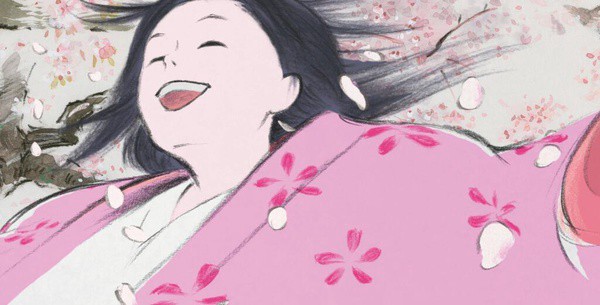Women and Hollywood’s end-of-year coverage includes our “Best Women-Directed Documentaries of 2014 (That We Managed to See),” “Best Women-Directed Films of 2014,” and “Best TV Shows and Moments of 2014” lists, with much more to come in the next few days.
2014 wasn’t just another bad year for women behind the camera, but in front of it, too. One of the prevailing Oscar narratives this winter is the dearth of notable female lead performances — a symptom of the film industry’s continued reluctance to greenlight movies about girls and women.
Still, there are plenty of female-centered movies from this past year to celebrate and to catch up on. Here are our favorites from 2014, in alphabetical order.
1,000 Times Good Night
A fascinating and empathetic look at family and motherhood and the sacrifices endured by the loved ones of journalists who cover wars around the world, 1,000 Times Good Night features Juliette Binoche as a war photographer addicted to the action. She can’t turn it off even when she’s back home — an experience based on director Erik Poppe’s own life, but one that arguably gains greater power and resonance when the character asking her family to sacrifice for the sake of her career is a woman.
The Babadook — Written and Directed by Jennifer Kent
One of the most honest commentaries about modern motherhood among this year’s film offerings lies in The Babadook, an unforgettably creepy horror movie about a single mom (Essie Davis) who fears that the monster her extraordinarily difficult young son (Noah Wiseman) keeps talking about might be real. But it isn’t the monster that frightens her most, but a mysterious pop-up book that foretells that she will kill her own child — a prospect that first-time writer-director Jennifer Kent makes all-too-empathizable.
Belle — Directed by Amma Asante
The usual Austenesque dilemma about which handsome gentleman to marry gains sky-high, possibly history-changing stakes when it’s a mixed-race lady who must choose. Based on the life of an actual Englishwoman, the impossibly lovely Belle tells a love story at once thrillingly different and swooningly familiar while exploring issues of gender, race, and class still relevant today.
Beyond the Lights — Written and Directed by Gina Prince-Bythewood
It’s hard to know what to praise first about Beyond the Lights: its utterly believable romance between a pop star (Gugu Mbatha-Raw) trapped by fame and a cop (Nate Parker) with political aspirations, or its intelligent and compassionate exploration of the hypersexualization of women in the pop and hip hop industries. Featuring achingly beautiful musical performances, Beyond the Lights’ tale of a songbird’s search for her true self isn’t just exceptional, but, especially in an environment with so few female protagonists of color, urgently necessary.
Ida
A deceptively simple story about an orphaned young nun about to take her vows in 1960s Poland when she discovers she is Jewish, Ida is told with cinematographic brilliance and a heartbreaking sense of loss. Lead actresses Agata Trzebuchowska and Agata Kulesza, who play Ida and her estranged aunt, make for a somber but dynamic pair as they set out on a road trip to discover all that history has taken from the two women.
Maleficent — Written by Linda Woolverton
2014 was the Year of Angelina Jolie, who not only made an instant awards-contender in Unbroken, but also took over the box office after a four-year absence from theaters with Maleficent. Jolie was delicious campy as the titular horned fairy, but also tender and somber and kickass. And in a year where sexual assault is finally being discussed by the mainstream culture as a grave and ubiquitous problem, Maleficent proactively tackled the issue in a way that focused on the importance of bodily integrity and healing.
Obvious Child — Written and Directed by Gillian Robespierre
Gillian Robespierre revived and updated the rom com for the 21st century with the charming and hilarious Obvious Child. Its politics are wonderfully contemporary, but it’s a movie — not a manifesto. Jenny Slate proves a brilliant standup (that probably improvised line about the danger of black panties still cracks us up), and Gillian Robespierre shows us she can write and direct the hell out of parent-child scenes in the beautifully touching scenes between Slate and her on-screen parents Polly Draper and Richard Kind.
The Tale of the Princess Kaguya — Co-Written by Riko Sakaguchi
The Tale of the Princess Kaguya reminds us what we’ll lose with Studio Ghibli’s imminent closure: wonderfully complex movies about girls from Japan’s premiere animation studio. Their latest — and penultimate — offering is one of their most touching and beautiful, focusing on a peasant girl who fights her supernatural fate to be “civilized” and married off to a disingenuous royal suitor.
Tracks — Written by Marion Nelson
Despite outward similarities to Wild, Tracks is a stranger and more unusual beast. Based on Robyn Davidson’s travelogue, it follows Mia Wasikowska, four camels, and a spirited little dog as they trek 1,700 miles through the gorgeously shot Australian desert. A meditation on nature and animals, Tracks evinces a love for both that feels quite unlike anything else we’ve seen this year.
We Are the Best!
Full of mischievous exuberance, this Swedish charmer is a complicated and heartfelt portrait of girlhood and female friendship. Stuck in a new age (1980s Stockholm) that proclaims disorder and revolt belong to the past (“punk is dead”), three teenage girls who start a punk band become rebels simply because they’re trying to be themselves.
Wild
A fiercely adoring love story between mother and daughter, the adaptation of Cheryl Strayed’s powerful memoir doesn’t shy away from its feminist roots or the dangers of hiking while female. Reese Witherspoon and Laura Dern are incandescent in this aching, funny, eventful, and necessary journey of self-recovery.







